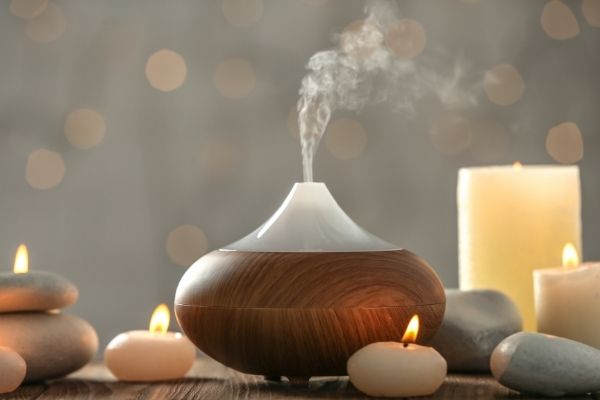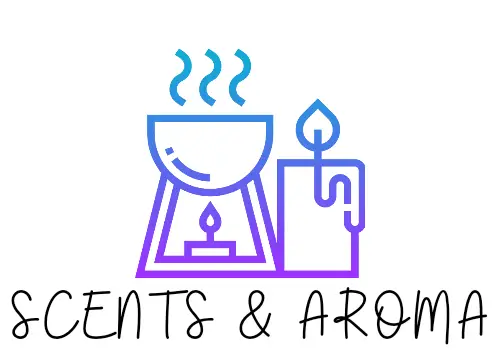Oil diffusers can help clean the air, and some specific essential oils like lavender, ylang ylang, and rosemary contain antibacterial and antifungal properties which are added benefits. However, oil diffusers should not replace air purifiers as cleaning the air is not their primary function.
In this article, we will see if oil diffusers can clean the air, how oil diffusers clean the air, the oils that work best for cleaning the air, and why oil diffusers should not replace air purifiers.

DO OIL DIFFUSERS CLEAN THE AIR?
Ever since oil diffusers gained popularity, users look out for more benefits that can be gotten from oil diffusion. The diffusion of essential oils in the home has many benefits like boosting mood, promoting good health, encouraging sleep, etc. These reasons are why most people choose essential oils over other sources of scents in the home.
Aromatherapy has many benefits which include purifying the air, however, this should not be your main reason for getting an oil diffuser as this benefit is just an addition and not the main benefit. Besides, not all essential oils clean the air and many other factors should be put into consideration before choosing an essential oil.
Before picking an essential oil to use in your diffuser, make sure you read up on it and ascertain that it’s the best choice to make. If you don’t, you might end up having a bad aromatherapy experience as the unprofessional use of essential oils might cause allergic reactions, enhance breathing problems, and be harmful to pets, children, and pregnant women. If possible, also seek the doctor’s advice before making a choice. Have a read of this guide to see that misuse of essential oils can actually cause nausea and other symptoms
Some essential oils do a great job at cleaning the air, however, they cannot replace air purifiers because oil diffusers cannot prevent molds and trap allergens that could infect the air.
DIFFERENCE BETWEEN OIL DIFFUSERS AND AIR PURIFIERS
Oil diffusers like the reed diffusers or the ultrasonic diffusers use different methods to diffuse essential oils into the air in the room. Different essential oils have their different aromas and so, the user needs to pick the best aroma and could decide to mix essential oils for better benefits.
Oil diffusion is a form of aromatherapy that has a lot of benefits to the health when used rightly and in appropriate quantity.
On the flip side, air purifiers are specially made to remove contaminants in a room by trapping pollutants and allergens like pet dander, dust mite, and pollen. Air purifiers that use HEPA (High Efficiency Particulate Air) technology filters 99.7 percent airborne particulate matter.
Air purifiers improve the air quality in a room by purifying them, reducing the chances of airborne diseases, and allergic reactions, and eliminating irritants for people with respiratory problems.
So if your major concern is cleaning the air, you should go for an air purifier. This doesn’t mean you can’t use the oil diffuser. The combination of both will leave your room smelling great and the air free from contaminants.
HOW ESSENTIAL OILS CLEAN THE AIR
ANTIMICROBIAL, ANTIFUNGAL, AND ANTIBACTERIAL PROPERTIES:
Essential oils are gotten from the bark, leaf, and seed of plants. These oils are a core part of the plant as they protect them from fungi attacks. When extracted, essential oils are used for different purposes like skin-care products, air products, insecticides, fungicides, etc. The antimicrobial benefits of these oils can be obtained in various ways and one of them is diffusion.
Diffusing essential oils can reduce the germs and bacteria in the air by inhibiting and repelling them. When inhaled, it could also help clear the airways.
When essential oils are diffused rightly, they increase the oxygen content in the air. Essential oils have oxygen and diffusing them releases this oxygen into the air, making the air cleaner.
NEGATIVE IONS:
They also produce negatively charged ions giving them antibacterial properties. Essential oils have ionic oxygen that creates negative ion charges. When essential oils are diffused, millions of ionized microdroplets are dispersed in the air, replacing positive charges which are constantly created by the use of electronic appliances and the release of air pollutants. This is also the same as with beeswax candles which actually clean the air with negative ions.
OZONE:
Although the quantity of ozone in the atmosphere is not much, it is very essential for proper breathing. It acts as a stimulant for our nervous system. However, in a closed room, there is a minute amount of ozone in the air. Essential oils like juniper berry and lavender contain ozone, and diffusing these oils will help improve the air quality.
ESSENTIAL OILS THAT CAN CLEAN THE AIR
If you want the added benefit of air purifying from your oil diffuser, here’s a list of essential oils which have antibacterial, antifungal, or anti-inflammatory properties that could help clean the air.
- TEA TREE ESSENTIAL OIL: Tea tree oil is gotten from tea trees and it contains high doses of terpinen-4-ol which is shown to kill bacteria and fungi. Tea tree oil is also antiviral and can reduce allergic skin reactions.
- ROSEMARY OIL: It has antimicrobial and antifungal properties. The sweet aroma of rosemary can also remove foul odor from the room. It also has long-lasting repellent effects on some disease-causing insects.
- YLANG YLANG ESSENTIAL OIL: This oil has the potential to fight pollutants in the air. It contains linalool, a substance noted for its antibacterial, antifungal, and anti-inflammatory properties.
- LAVENDER OIL: Lavender is known for its antifungal and antibacterial properties. It can eradicate airborne fungi and bacteria within 30-60 minutes of diffusion.
- CITRUS: Citrus oils like sweet orange, lemon, and grapefruit oils are microbial as they contain high levels of limonene which destroys airborne germs.
Other essential oils that clean the air include lemongrass, eucalyptus, cinnamon, oregano, thyme, and geranium.
As earlier said, please make sure you research the effects of any essential oil before you use it in your oil diffuser. Even when you start using it, note its effect on you to detect any negative effects. If any, discontinue use.
CONCLUSION
While oil diffusers should never serve as replacements for air purifiers, most essential oils offer one form of air purification or the other. Besides this, the aroma that fills the air also makes the air more acceptable for breathing.
However, always make sure to search for the best oil for your peculiar health instead of going for any random oil. Also, ensure you diffuse for a short period (like 30 minutes to an hour) at a time. Lengthy use of the oil diffuser can reverse the health benefits of the essential oil, and not use an overdose as essential oils are strong.
- Can You Put Perfume In A Humidifier? (Read First) - September 17, 2022
- Can You Put Essential Oil In A Steam Mop? (Safety Advice) - September 17, 2022
- How To Make Lavender Oil At Home ( Candles And Diffusers) - September 9, 2022
